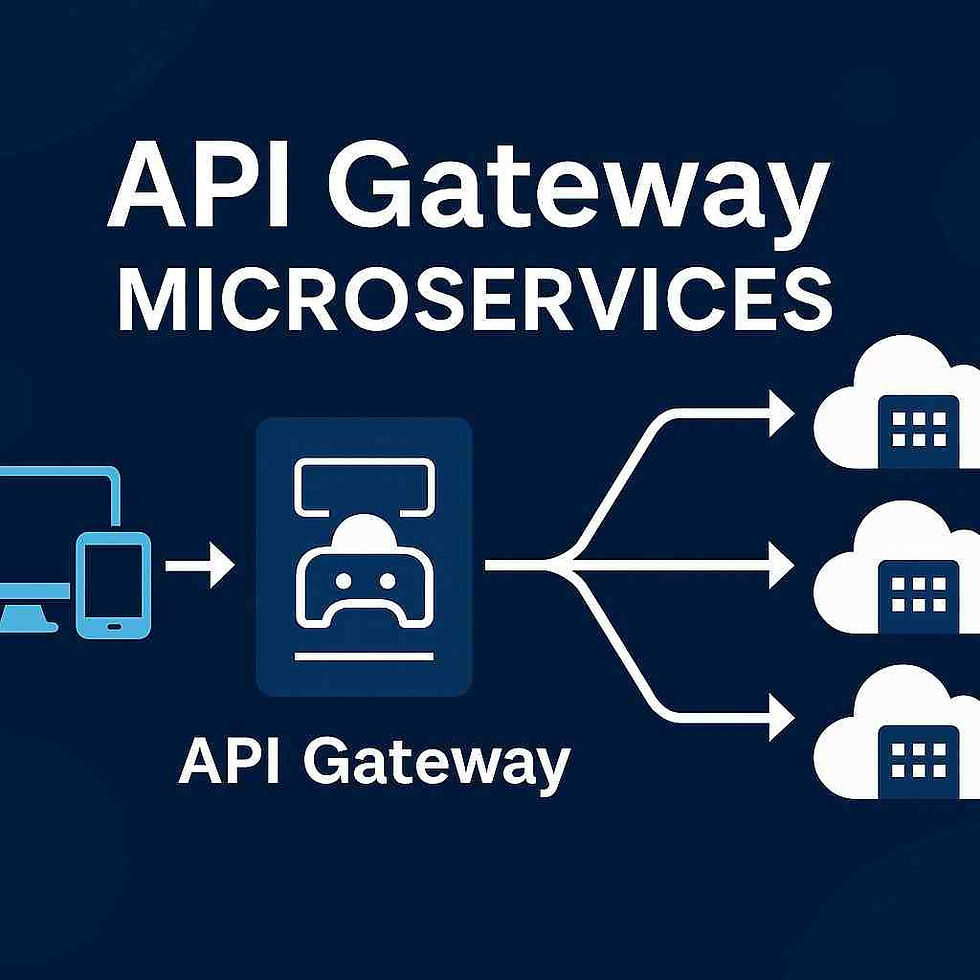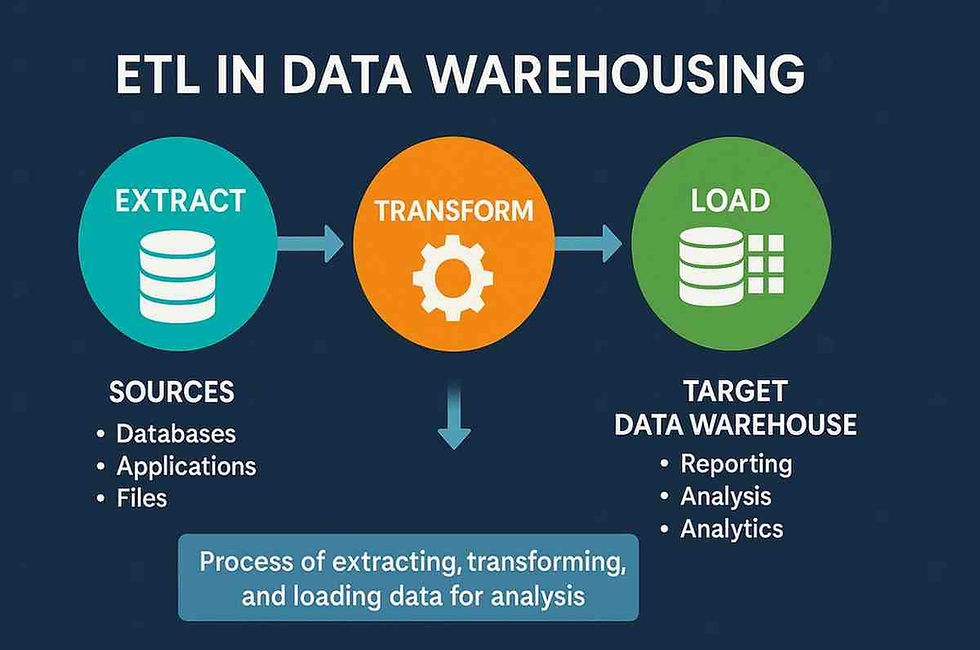Your Guide to Regression Testing for Microservices
- Gunashree RS
- Dec 4, 2024
- 4 min read
As microservices become the preferred architectural choice for modern applications, the need for specialized testing strategies has grown significantly. Microservices, by design, are modular, independently deployable, and scalable. While these attributes offer unparalleled agility, they also introduce complexities that traditional testing methods cannot adequately address.
This is where regression testing for microservices comes in. By ensuring that updates or changes to individual services do not disrupt the overall system, regression testing becomes critical in maintaining the integrity and performance of microservices-based systems.
This article dives deep into the unique aspects of regression testing for microservices, common challenges, and how innovative solutions like Devzery’s AI-powered tools can revolutionize the process.

Introduction: Why Microservices Need Specialized Regression Testing
Microservices architectures demand a testing paradigm tailored to their unique needs. Unlike monolithic systems, where all components are interconnected in a single codebase, microservices consist of multiple independent services communicating through APIs.
Key reasons why regression testing is vital for microservices:
Interdependencies: Changes to one service can inadvertently affect others.
Frequent Updates: Agile and DevOps workflows often involve rapid deployments.
Complex Communication: APIs, databases, and messaging systems must work seamlessly.
Regression testing ensures stability, prevents unexpected issues, and supports faster time-to-market for microservices applications.
Understanding Regression Testing for Microservices
What Is Regression Testing in the Context of Microservices?
Regression testing for microservices focuses on verifying that updates to individual services do not adversely impact the overall system. In microservices:
Each service operates independently but interacts with others.
APIs and shared resources like databases or message brokers play critical roles.
Failures in one service can cascade across the entire system.
Devzery recognizes these intricacies and offers tailored solutions that prioritize system-wide stability while accommodating the autonomous nature of microservices.
The Unique Challenges of Regression Testing for Microservices
Testing microservices is fundamentally different from testing monolithic systems due to:
Interdependent ServicesEach microservice has its own functionality but relies on others for data and operations. A small change in one service could disrupt multiple workflows.
Versioning ConflictsDifferent services may run different versions simultaneously, making it essential to test compatibility across versions.
Data ConsistencyShared databases or messaging systems must maintain consistency despite frequent updates.
API ChangesAPIs serve as the backbone of microservices communication. Regression testing ensures that changes in APIs don’t break downstream or upstream integrations.
Traditional testing methods, which often rely on static test suites, struggle to address these complexities.
Why Microservices Demand Unique Testing Strategies
The dynamic nature of microservices necessitates innovative approaches to regression testing.
Continuous DeploymentFrequent releases and iterative updates require continuous testing to maintain quality.
Independent ScalabilityEach service can scale independently, meaning testing must accommodate varying loads and performance benchmarks.
Protocol and API TestingTesting must cover communication protocols, APIs, and shared resources to ensure seamless interaction across services.
Shift-Left TestingRegression testing in microservices often starts earlier in the development cycle, ensuring issues are caught before deployment.
By employing these strategies, teams can ensure their microservices remain resilient, scalable, and user-focused.
Devzery’s Approach to Regression Testing for Microservices
How Devzery Empowers Teams with AI-Powered Regression Testing
Devzery’s advanced regression testing solutions are specifically designed to address the complexities of microservices.
Here’s how:
AI-Powered ToolsDevzery leverages artificial intelligence to automate test suite generation, dynamically identify impacted services, and optimize test execution.
ScalabilityDevzery’s tools adapt to the unique requirements of evolving microservices architectures, ensuring that testing scales with the system.
Codeless TestingDevzery simplifies workflows by enabling codeless testing, reducing the reliance on coding expertise, and accelerating testing cycles.
Seamless CI/CD IntegrationDevzery integrates with popular CI/CD tools like Jenkins, GitLab, and Azure DevOps, ensuring that regression testing is part of the continuous delivery process.
Key Features of Devzery’s Microservices-Focused Solutions
Devzery’s solutions come with features tailored to the needs of microservices:
Dynamic Test Suite GenerationAI algorithms analyze code changes and automatically create test cases to target impacted services.
Comprehensive API CoverageEnsures that service interactions, data exchanges, and communication protocols remain functional and secure.
Robust CI/CD IntegrationEnables automated regression testing during every deployment, maintaining high-quality standards.
Customizable DashboardsProvides insights into test results, performance metrics, and system health, allowing teams to make data-driven decisions.
These features empower mid-to-large enterprises to manage the complexity of microservices while maintaining system integrity and accelerating delivery timelines.
Addressing Common Misconceptions About Microservices Testing
Microservices regression testing often faces several misconceptions:
Myth: "It’s Just Like Testing Monolithic Systems."Unlike monolithic architectures, microservices require testing interdependencies, APIs, and independent components.
Myth: "Automation Isn’t Necessary."Manual testing cannot keep up with the pace of microservices development. Automation is essential for efficiency and accuracy.
Myth: "One Test Suite Covers All."Microservices demand dynamic and context-specific test suites, which Devzery’s tools provide.
By addressing these misconceptions, Devzery helps teams overcome barriers and unlock the full potential of microservices regression testing.
FAQs
What makes microservices regression testing different from monolithic systems?
Microservices regression testing involves testing independent yet interconnected services, requiring dynamic test strategies and automation.
How does Devzery handle API testing in microservices?
Devzery automates API regression testing to validate interactions between services and ensure smooth data exchanges.
Why is codeless testing important for microservices?
Codeless testing accelerates cycles, simplifies processes, and allows cross-functional teams to participate without coding expertise.
Can Devzery’s solutions integrate with existing CI/CD pipelines?
Yes, Devzery seamlessly integrates with major CI/CD tools like Jenkins, GitLab, and Azure DevOps for continuous quality assurance.
How does Devzery ensure scalability in regression testing?
Devzery’s AI-powered tools dynamically adapt to changes in microservices architectures, scaling alongside evolving systems.
Conclusion
Regression testing for microservices is a cornerstone of maintaining software quality in modern architectures. With their complexity and interdependencies, microservices demand specialized testing strategies that prioritize scalability, automation, and continuous integration.
Devzery’s AI-powered solutions are at the forefront of this transformation, empowering teams to streamline workflows, reduce errors, and deliver exceptional software at speed.
Key Takeaways
Regression testing ensures stability in microservices architectures.
Microservices require testing strategies tailored to their dynamic nature.
Devzery’s AI-powered tools automate and optimize regression testing.
Codeless testing accelerates adoption and simplifies workflows.
Robust CI/CD integration is critical for seamless deployments.




Comments